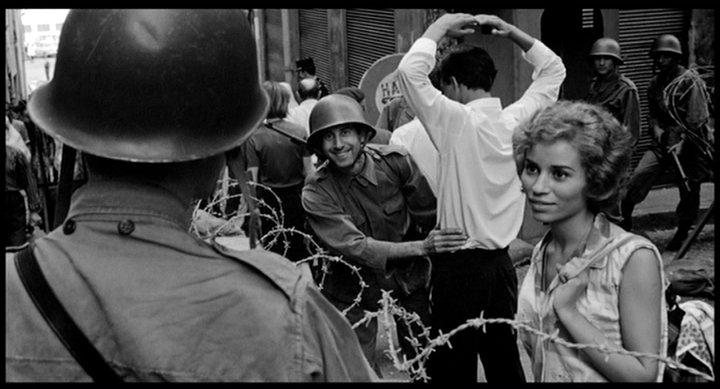One of the aspects of Pontecorvo’s film, Battle of Algiers (Pontecorvo, 1966), that I found fascinating was how the role of Islam played in the film through the use of diegetic sound.
For instance, there were two scenes in the film where the call to prayer was being recited some sort of loudspeaker in the background. While normally the call to prayer is a reminder that one of the 5 prayers of the day is about to occur and there is a need to take precedence in preparing oneself for this particular prayer, Ali and the members of FLN did not in both scenes.
I found this very interesting because Islam is so highly valued in the FLN for this film, and even when one particular character expresses his desire for Algeria to become free he states that it should be free but under Islamic rule. If religion has such a high value in the film then why didn’t Ali and his companions stop to pray in these two scenes? What is Pontecorvo trying to convey through this action?
In my personal opinion, I believe that Pontecorvo is trying to convey through the use of the call to prayer as diegetic sound that Islam plays a very significant role in the film, and is in fact always in the back of the people of Algeria’s mind, but perhaps freedom from the French was taking precedence at the time.
